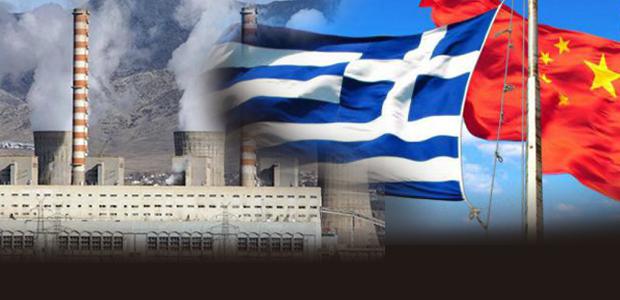Main power utility PPC is pinning its hopes on Chinese investment and collaboration to help it overcome various challenges such as the bailout-required contraction of the utility’s currently dominant market share and a European Court penalty threat for its continued monopolistic control of the country’s lignite resources.
PPC plans to establish a consortium with China’s CMEC (China Machinery Engineering Corporation) for the construction of a secong power station in Meliti, Florina, northern Greece. The Chinese company would hold a majority stake in this project.
The Greek-Chinese agreement for Meliti II, essentially announced in a letter forwarded just days ago to energypress by PPC’s CEO Manolis Panagiotakis, will be fully funded by the Chinese company, meaning it will invest the entire 700 million euros needed to develop the Meliti power station. This will provide the foreign investor with a majority stake, reliable sources have confirmed.
PPC will contribute the exisiting Meliti I project and its lignite mines in the region to the venture for the minority share it will hold in the consortium, energypress was informed. The Greek utility’s precise stake in the Greek-Chinese consortium will depend on the evaluation of Meliti I. PPC could end up with a stake of less than 40 percent and no managerial rights in the partnership, it is believed.
Based on the plan, private-sector owners of lignite mines located in the Meliti region, suppliers of Meliti I, may also be included in the venture as a third partner by contributing their mines to the consortium for a proportionate stake.
Four regional mines, belonging to PPC and private-sector companies, are in a position to supply the prospective Greek-Chinese lignite-fired power station, if their owners agree. Two of these, the Klidi mine, currently defunct as a result of surrounding residential constraints, and a small part of the Vevi mine, which has remained closed over the past 15 years, are both owned by PPC. Aktor-Terna owns the region’s Ahlada mine. Aktor had also been granted the rights to the biggest part of the Vevi mine but the deal was never ratified in Greek Parliament, denying the company exploitation of this lignite deposit.
PPC’s partnership with CMEC would help the utility honor a bailout-required demand for market share contractions, in both retail and production, to 49 percent by 2019. The collaboration would also help the utility deal with the European Court’s lignite monopoly challenge. In addition, the Greek-Chinese partnership promises to help PPC upgrade and make more competitive its lignite-fired power production, through lower emissions, with the introduction of the Meliti II power station and withdrawal of older units.
Other undisclosed dimensions may also be at play in this Greek-Chinese partnership. For instance, PPC’s boss, in more recent times, has expressed an interest to penetrate the neighboring Albanian electricity market. CMEC, one of China’s biggest construction companies, possessing technical knowhow and capital, would be a useful partner for this prospect.
However, certain questions have emerged about PPC’s new power station plan, including its feasibility given Greece’s reduced electricity demand amid the country’s extended recession. The price level at which the new unit’s electricity output will be sold is another concern. For quite some time now, natural gas, more affordable as a result of the drop in international oil prices, has been prefered over lignite as an electricity production source. Construction costs concerning lignite-fired power stations are extremely high, as are their operating costs due to CO2 emmision charges, which are expected to reach even higher levels as a result of the EU’s environmental policies. PPC and its Chinese partner will need to drastically reduce mining costs, an extremely difficult task, if lignite-fired production is to regain its competitiveness.
PPC had launched an international tender for development of the Meliti II project in 2008 but failed to attract any investor interest. Market conditions – demand, emmision right policies – have since worsened for lignite-fired power generation prospects.





